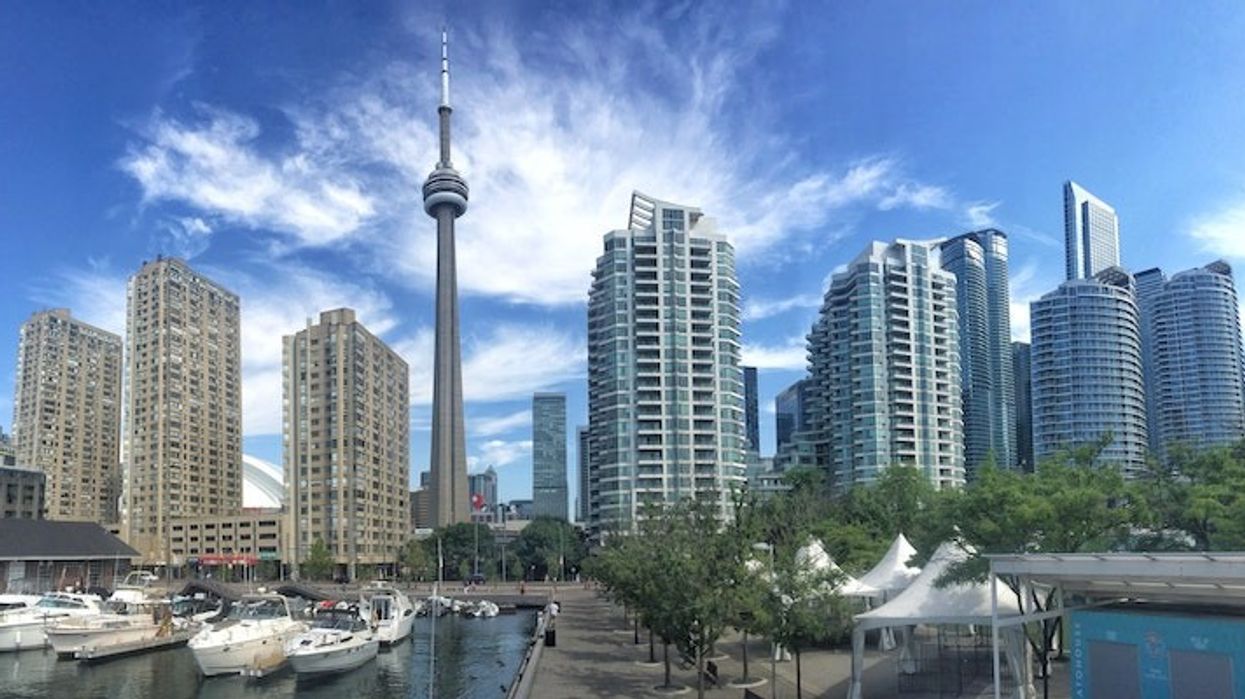It should come as no surprise that the recent coronavirus pandemic will have an effect on the real estate and housing market. Even one as hot as the GTA's has been in recent months and years.
According to most, we've never seen anything like this – not even during the 2008 financial crisis.
So we asked Shaun Hildebrand, President of Urbanation, for his insights into what the COVID-19 crisis will likely bring to the condo market in 2020. And while we're only now starting to see the first signs of bringing a large part of the global economy to a grinding halt, these repercussions will likely continue to play out over the coming months and year(s).
Here's what Hildebrand sees for the GTA condo market in the wake of the coronavirus pandemic.
Slowing Down
The heightened uncertainty and physical distancing measures being encouraged across Canada right now will lead to a slower market for new condominium developments in Toronto and the GTA.
As buying a new condo requires strong confidence that the market will appreciate and the economy will remain stable, since units may not complete construction for up to 5 years, demand will scale back significantly – the extent to which this occurs will depend on how deep and long the current macro downturn becomes.
Spring Launches
From a functional standpoint, many developments have either closed their sales offices, limited their hours or have moved to a virtual environment. I expect most of the projects that were anticipated to launch this spring will be delayed until conditions improve – the first signs of which will appear in the resale market, which could take at least six months to materialize in the data. While some smaller scale projects that cater more to end-users may launch in the coming months, which would look to attract buyers in areas with more secure employment, I would expect larger-scale, investor-driven projects to hold-off coming to market for a while. Suffice it to say, new condo sales volumes and construction starts will be down quite a bit this year.
Prices, Developers, and Buyers
Condo developers are in a good position as the units in development are almost entirely pre-sold and the market was exceptionally tight leading into this. The robust market stimulus and support initiatives from the government and Bank of Canada should also combine with low inventories to help continue supporting prices. It seems more likely at this point that prices will pause rather than experience a noteworthy decline as buyers and developers mutually disengage for the most part. Low borrowing rates, support for lenders and borrowers and fiscal aid will put the market in a good position for an eventual return to growth. When and to what degree that happens depends on what happens to the economy and outlook in the coming months.
That said, unless construction sites are shutdown or become significantly delayed, a wave of condo completions will occur this year, most of which are pre-sold to investors and will end up in the rental market. This will combine with a shift in use of some short-term rentals (which can’t attract guests in this environment) to long-term leases to boost rental supply during a period when demand will fall due to a drop in in-migration and rise in unemployment.
I don’t think anyone is talking about the fact that the recent decision to close the Canadian borders will restrict a key engine of demand at a time when condo completions could reach new highs. International immigration and non-permanent residents totalled 150,000 in the Toronto CMA in 2018 and 2019, representing basically all of our population growth. Since most new international migrants rent, we were well positioned to absorb the nearly 33,000 condo and purpose-built rental completions scheduled for 2020. Not anymore, as I can’t imagine that population inflows return to previous levels until we have a vaccine (which by some estimates may take more than a year). This should lead to higher vacancy rates, which will also be pushed higher by rising unemployment.
So, after a strong escalation in recent years, condo rents are likely to experience at least some decline in 2020, providing a temporary relief valve for an historically tight market.
Condo Investors
Condo investors will be okay this year. Because units finished this year were bought four to five years ago and rates have dropped, calculated carrying costs (including mortgage with 25% down, condo fees, taxes and insurance) will be at least $100 a month less than current average rents in Toronto of $2,400. This provides some room for rents to adjust down more easily so the units can become occupied. But this obviously presents greater challenges for investors who will see their units come to completion in 2021 and beyond who will need much higher rents to cover carrying costs.
Rentals
Rents in Toronto were already flattening before this happened as the market began to show some resistance to high rents. Same-building annual condo rent growth in Q4-2019 was 1.8% – the slowest rate of increase in four years. I think we’re headed for vacancy rates this year that rise above 3-4% for the first time since 2009 and condo rents that could decline by up to 5% (which is significant as rents are notoriously sticky).
But this will be temporary.
As fundamentals eventually recover, low structural vacancy rates will resume and rent growth will pick up again. In other words, while Toronto is still under-building rentals, it won’t feel like it this year. The impact on the purpose-built rental market will be more minimal, as the market is mostly comprised of older buildings characterized by low turnover and more affordable rents.





















